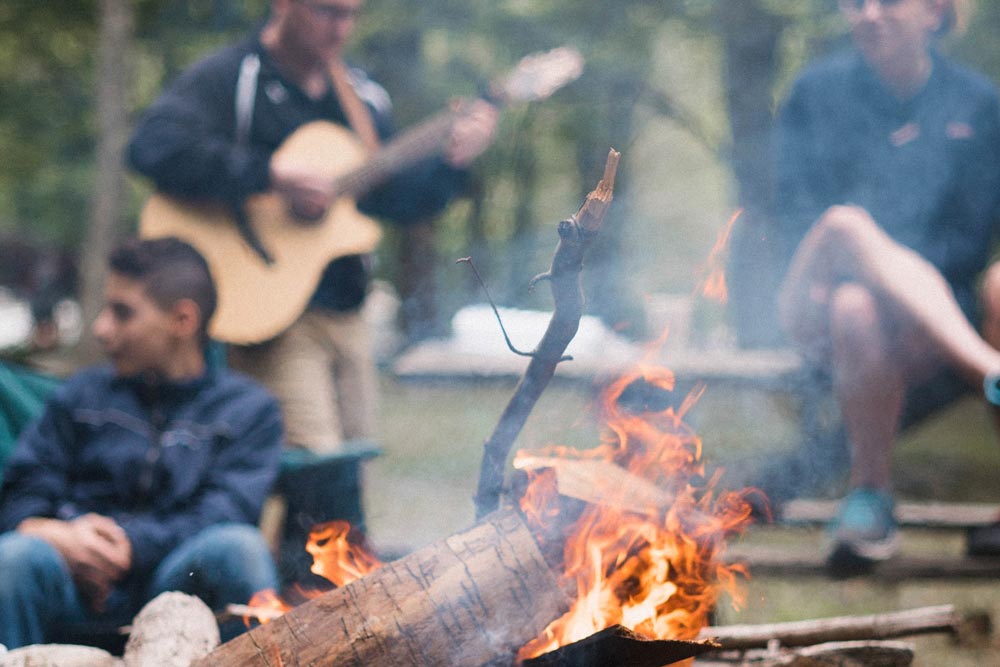
If you’re getting sober for the first time, especially if you just went through a drug rehab or alcohol rehab, the first thing that might strike you is just how much time you have. The more you drink, the less time you have and the less memory you have of that time. You also likely have habits and patterns built up that fill your time with alcohol, parties, and people – which are stimulating, exciting, and often euphoric. That’s why most of us get sober and go, “wow? Is life really this boring?” The answer is, well yes, but also, no. See, boredom is a byproduct of both not knowing what to do with your time and of not appreciating what it is you’re doing. And, there are some very good biological reasons you might have trouble enjoying the little things when you first move into recovery. We’ll cover that first and then go into some information about how to make your day-to-day life a little less “boring”.
Emotional Blunting and Alcohol
When you drink, alcohol affects the Gabapentin production in your brain, flooding GABA receptors along the central nervous system with neurotransmitters. These, in turn, trigger dopamine and serotonin release, resulting in the euphoria, lack of inhibitions, and release of stress that most of us love alcohol for. That’s why alcohol is a social lubricant. We drink it to feel good, to be able to talk to others freely, to feel less awkward in social situations, and eventually, because we can’t stop.
But, that does something to your brain. When you consume alcohol in large quantities, the nerves “deaden” or become less sensitive. You might notice that you need more alcohol to achieve the same results through tolerance. But, you’ll also struggle to get the same enjoyment out of something like eating a piece of pie, hugging your mother, or petting a small puppy. These things might still provide joy, but it will feel less, and that’s because it is. Long-term substance abuse reduces the amount of serotonin and dopamine produced in the brain while reducing how much of it you “use”. Most importantly, these effects take an average of 3 months after you quit to resolve. So, if you’re in early recovery, it’s quite natural that you’d find a lot of things to be boring. Your reward system just isn’t working. You’re experiencing a phenomenon known as “emotional blunting”, in which the highs of feeling good are quite literally blunted until your brain repairs the damage done to it by drugs or alcohol.
Unfortunately, the only thing you can do is wait it out.
Get Your Questions Answered
Our expert & caring staff on site are available 24/7. Call us today.
But, Actually not Going to Parties is Really Boring?
If you’re drinking all the time, you’re usually doing so in social environments with people, music, and food. These are fun and socially and physically desirable things. It’s natural that you’d be bored if you switch from a lifestyle in which you constantly go out to one in which you have to learn to entertain yourself. You might feel stifled, bored, even lonely. This is a more complicated problem because it has a 2-part solution. The first is that you have to learn to enjoy things by yourself. You have to build up your focus and train yourself to notice and enjoy those little things.

And that will always mean making space and time. For example, when you wake up in the morning, how much do you notice or enjoy your shower, your stretching routine, your breakfast, a cup of hot tea or coffee while looking out the window? Do you make space for yourself to enjoy little moments? Do you actually have hobbies and things to fill your time with to enjoy? These questions are important because if you’ve built your life around social events and alcohol, you don’t likely have too much going on at home.
If you’ve been to rehab, you know that hobbies, exercise, and self-care are important parts of your recovery. If you haven’t yet, you’ll have to learn that. Invest time in things that interest you. If you don’t enjoy them after a few months, invest in something new until you find things you like. That might be cooking, musical instruments, yoga, hiking, or any kind of crafts, but it should be something quiet you can do with your hands at home, on your own. You can still play video games, watch TV, and surf the web – but you want to ensure you have creative hobbies you can put your time into.
And, sure, cleaning is always going to be boring to most people. But you can listen to a podcast, play your favorite music, and otherwise occupy your mind while doing boring and routine tasks, especially as you learn to focus on them.
The second thing is that you need social events. It’s very easy to get out of rehab and proceed to isolate yourself. That’s especially true if your friends and family all drink. Or, if you haven’t told them you’re in recovery now. But, you need social interaction. Social interaction is fun and necessary for your mental and physical health. So, what’s a party without alcohol? Chances are you’ll feel awkward, and you’ll never have the kind of fun you have while drinking right?
Actually wrong. The kind of party where you just sit around and talk with people you don’t know that well can be challenging sober. But try activities. Go hiking with groups. Play sports or chess. Get involved with party games. These kinds of activities produce dopamine and serotonin, much like alcohol would, although in smaller quantities. You can still enjoy being in social groups, get social benefits, and have fun. Getting into talking to people and playing games can take time and effort. It may require changing your friends’ group. It may also require looking for local sober groups and sober events to take part in. Plus, it’s important that you stay social and continue to invest in social events. However, you may want to be careful, especially early on, as having a good time with others might trigger you into wanting a drink again.
Eventually, early sobriety is going to be boring. Chances are you have poor social support in place, you have poor habits around life without drinking, and you don’t really know what to do with yourself. There’s a huge difference between navigating Friday night sober and doing it so drunk you don’t remember what you did the next day. But, eventually, doing things sober is more calm, more enjoyable, and more rewarding. You’ll feel better the next day, you’ll remember what you talked about, and you can build meaningful experiences with people you care about. In the meantime, good luck and keep putting one foot in front of the other.
If you or your loved-one struggles from substance abuse please contact us today and speak with one of our experienced and professional intake advisors. We’re here to help you recover.






